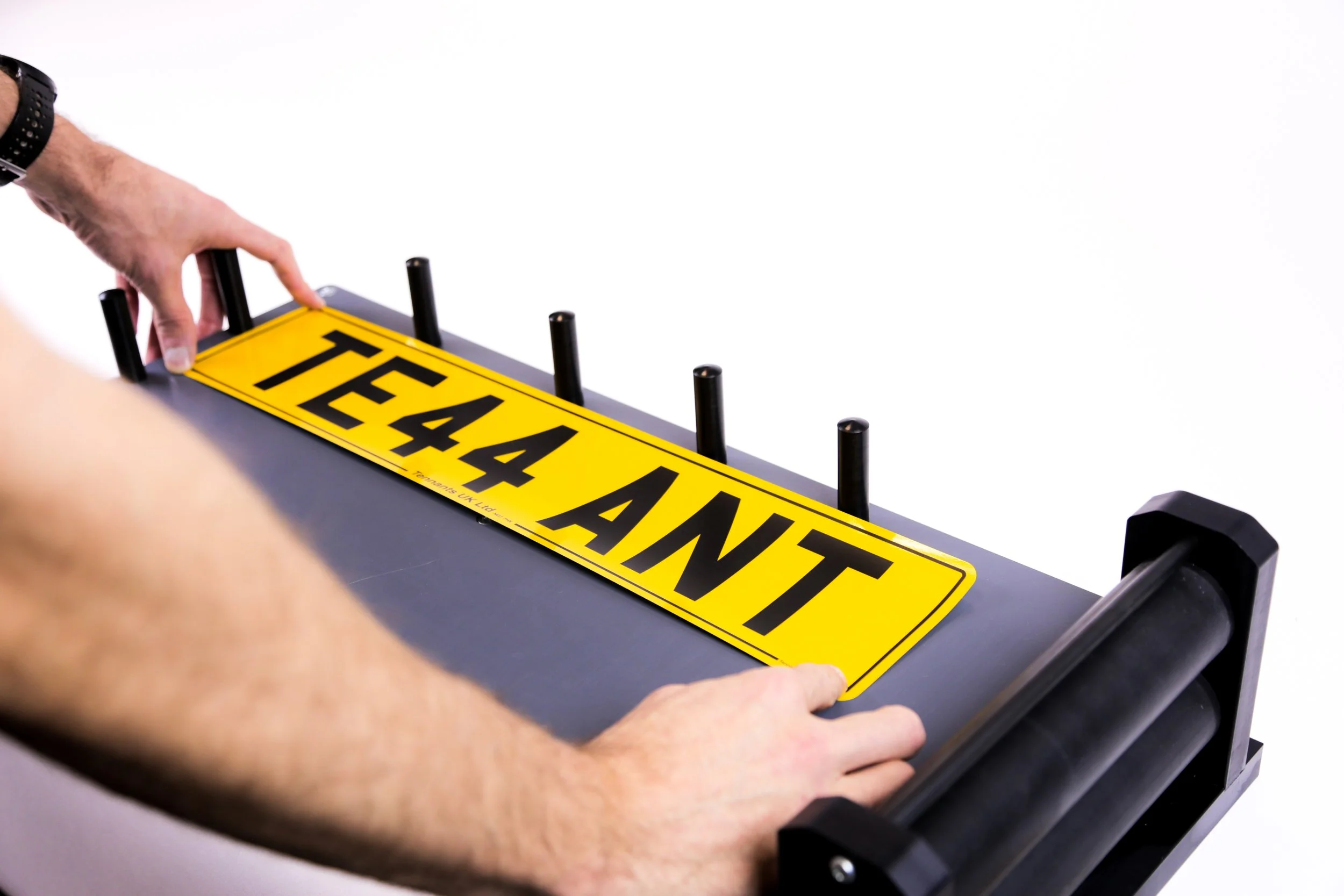Tennants urges the industry to prioritise number plate compliance
In light of the growing issue of vehicle cloning, Tennants UK, a leading provider of compliant number plate solutions, is encouraging dealerships, motor factors and garages to stay informed and vigilant about the risks of cloned number plates.
With the recent release of the new ‘74’ plates this September, Tennants is emphasising the importance of compliance and the role that aftermarket businesses play in reducing cloned plate incidents.
Cloned plates, which are illegal duplicates of legitimate registration plates, present a serious challenge within the UK’s automotive landscape. These plates are frequently used in criminal activities, including speeding, toll evasion and more severe offenses.
As such, it is vital for the aftermarket to understand these risks and ensure they have the right tools and procedures in place to produce fully compliant plates that align with legislation set by the Driver and Vehicle Licensing Agency (DVLA).
A recent investigation by BBC has uncovered that over 90,000 tickets have been issued by London authorities for vehicles using cloned license plates since 2021. The BBC’s findings, based on a Freedom of Information request sent to all London councils, revealed a 64 percent rise in car cloning incidents over three years, with cases increasing from 22,450 in 2021 to 36,794 in 2023.
This surge has led to a significant number of fines being cancelled, while overall traffic fines issued increased by 20 percent during the same period.
The DVLA has stressed the importance of licensed number plate suppliers complying with the Vehicle Crime Act 2001 and working with law enforcement to address the issue. In response, the Metropolitan Police stated they are focusing on high-risk areas to tackle the growing problem of cloned plates.[1]
The UK’s legislation around number plates is designed to enforce standards and curb the misuse of cloned plates. For example, number plates must adhere to the BS AU 145e standard, which sets stringent requirements for font, spacing and materials.
Additionally, businesses authorised to supply number plates must be registered, and each plate produced must contain identifiers such as the supplier’s name and a British Standard mark.
Stephen Archer, Business Development and Marketing Manager at Tennants UK, said: “Ensuring number plate compliance is not just about meeting legal standards; it’s about protecting both your business and your customers from the impacts of vehicle cloning. At Tennants, we provide systems that help dealerships and garages produce compliant plates efficiently, reducing the risks associated with non-compliance and ultimately contributing to the fight against plate cloning.”
Tennants UK offers comprehensive number plate printing systems designed to help the aftermarket produce legal and compliant plates with ease. Its range of thermal and laser printers, in tandem with industry leading software solutions, are compact, reliable and include compliant software that automatically checks for adherence to the latest BS AU 145e standards.
This includes enforcing correct character spacing, font requirements and visibility features, all of which play a key role in preventing plate cloning.
Tennants’ software’s functionality enables businesses to record and track plate production, ensuring that all plates are produced under strict control. Its systems also support unique user logins, allowing authorised users to create plates while maintaining full traceability.
This added layer of security helps businesses demonstrate compliance and provides a clear record of plate production that can be invaluable in instances of plate cloning or vehicle fraud investigations.
Archer added: “By investing in reliable, compliant equipment from Tennants, dealerships and garages can be confident that they are meeting DVLA standards, reducing the chance of plate cloning, and ultimately contributing to a safer, more secure automotive market. Our goal is to provide the aftermarket with the tools they need to operate efficiently, comply with legislation and build long-term customer trust.”

